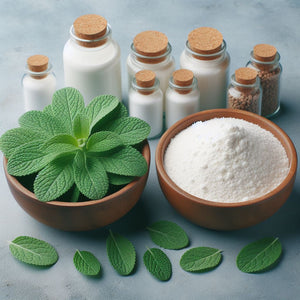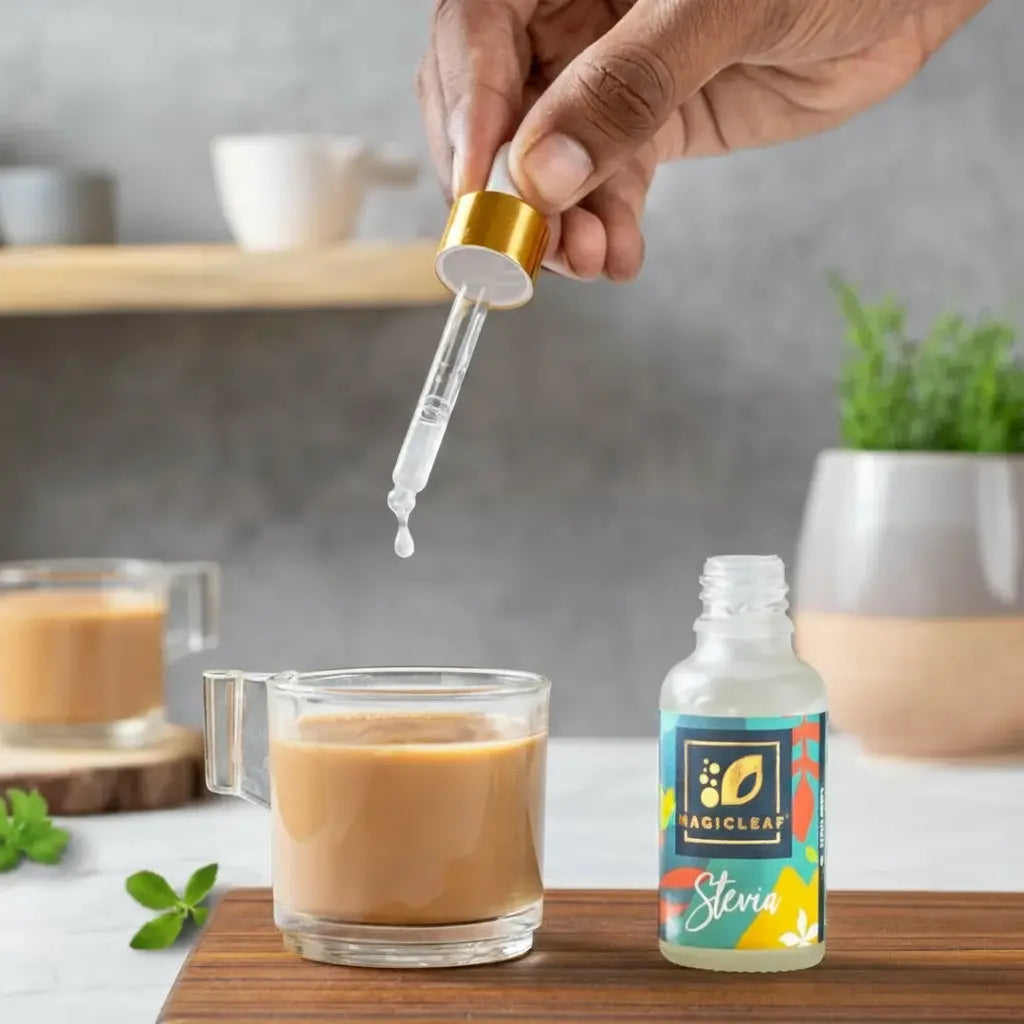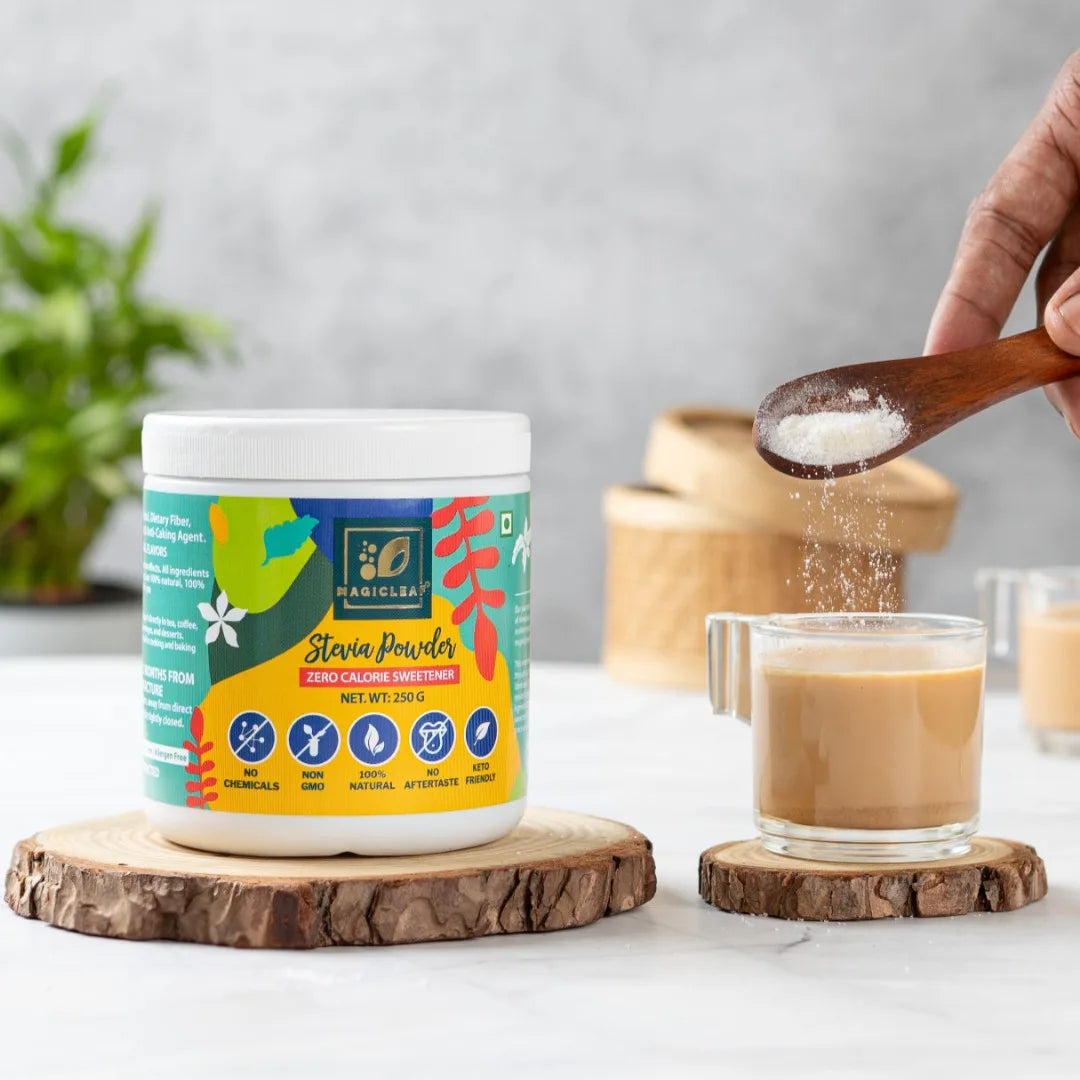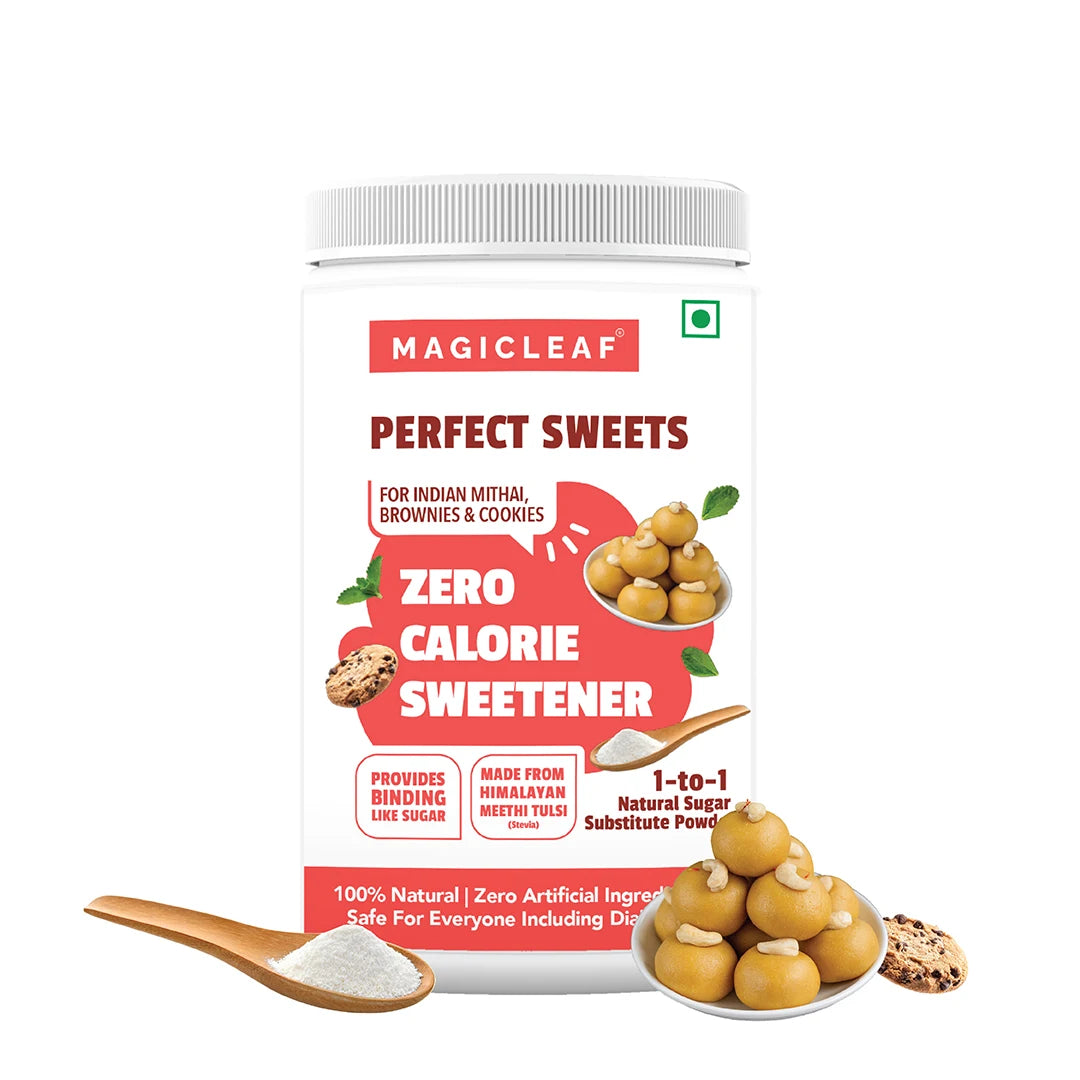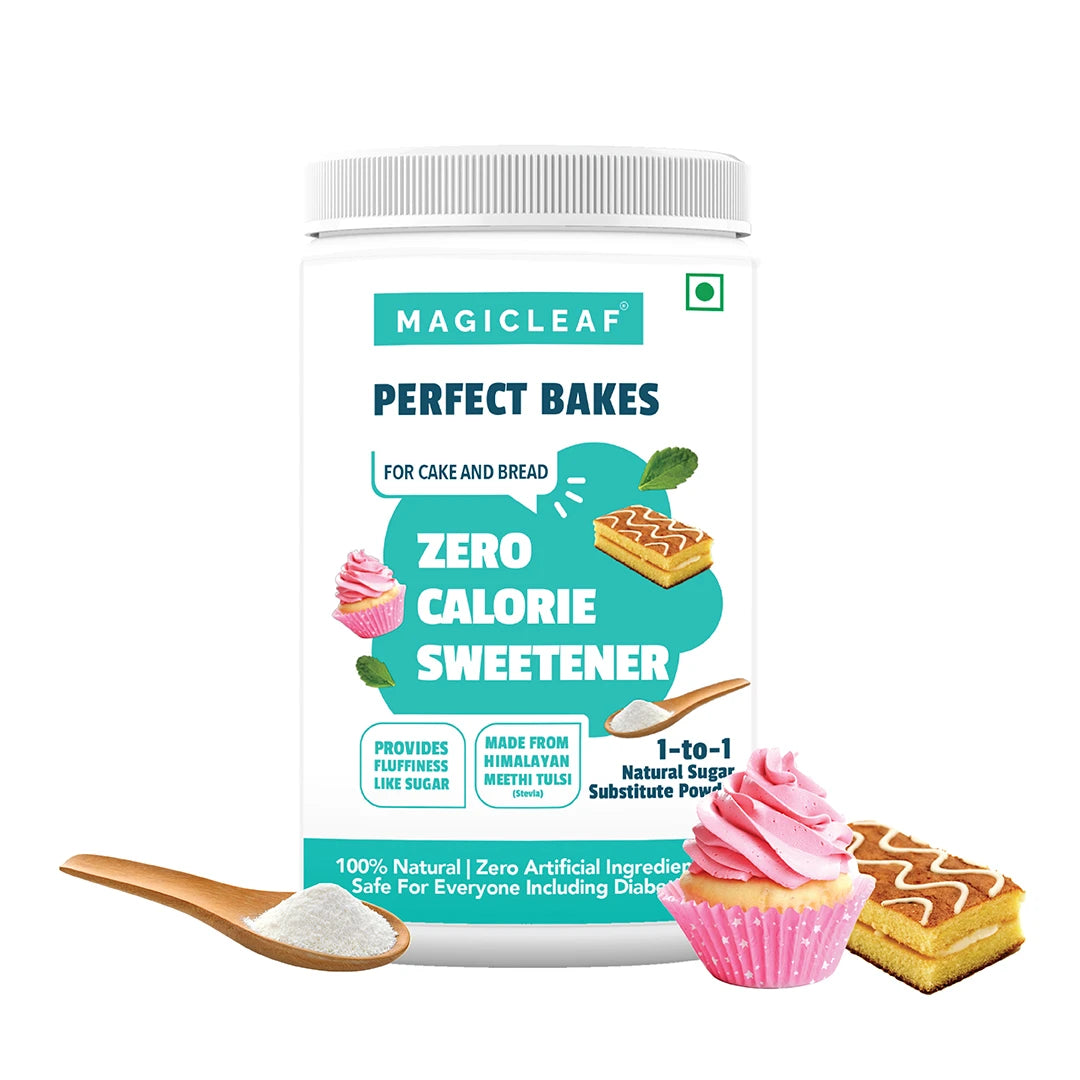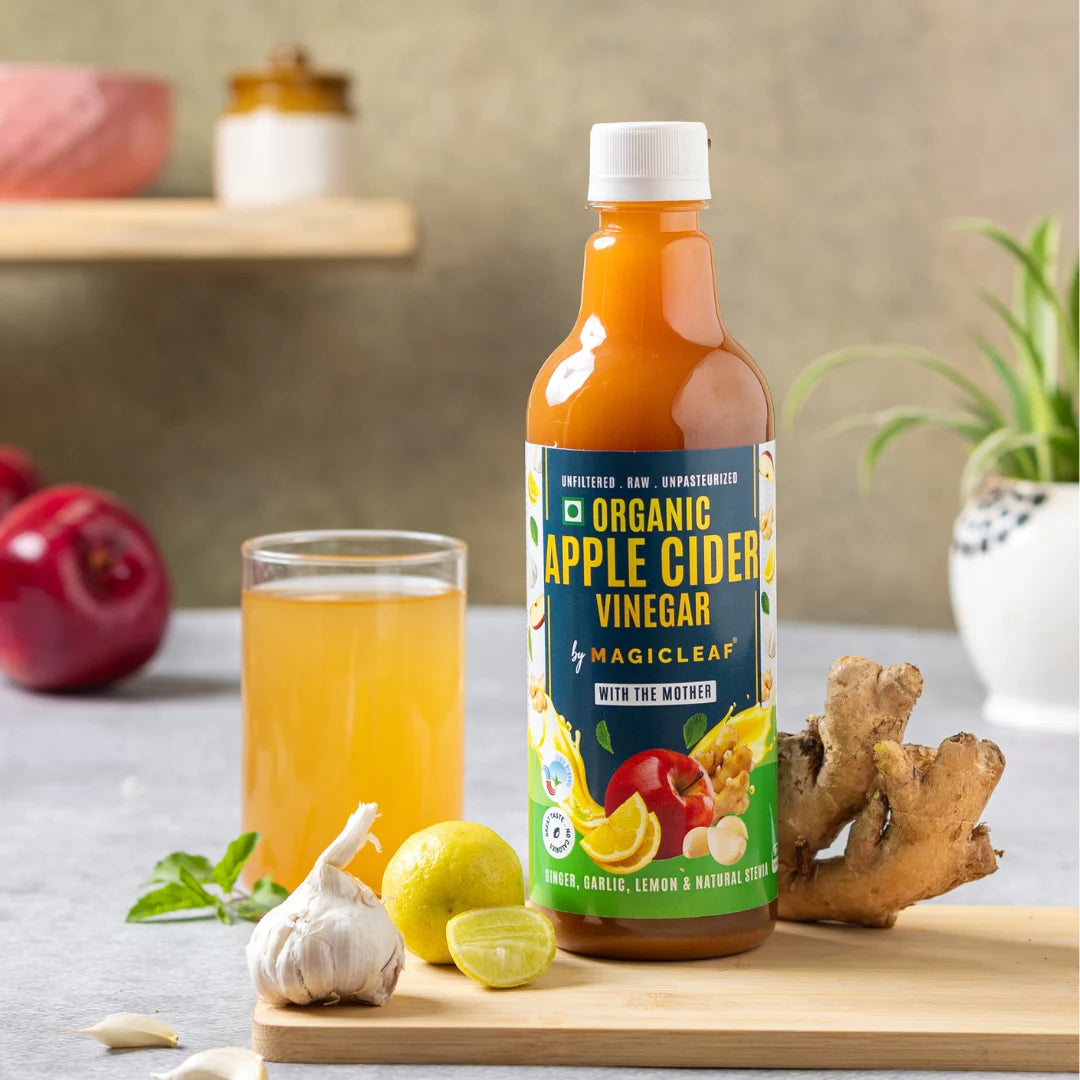| Aspect | Sucralose | Stevia |
|---|---|---|
| Source | Artificial sweetener derived from sucrose (sugar) | Natural sweetener derived from the Stevia rebaudiana plant |
| Sweetness | About 600 times sweeter than sugar | Much sweeter than sugar, with some extracts being 300 times sweeter |
| Calorie Content | 0 | 0 |
| Tooth Decay | Does not contribute to tooth decay | Does not contribute to tooth decay |
| Usage | Used in many packaged foods and beverages as a sugar substitute | Available in various forms including powder, liquid, and whole leaf. |
| Safety | Some studies suggest potential health risks and concerns, including gastrointestinal issues, metabolic disturbances, and effects on gut microbiota | Considered safe with no known adverse effects; has been used for centuries by indigenous populations and approved as a sweetener in many countries |
| Regulatory | Approved for use as a food additive by FDA | Approved for use as a food additive by FDA and recognized as safe by various regulatory agencies worldwide including India. |
| Natural | Synthetic sweetener | Naturally derived from plants |
| Metabolism | Not metabolized by the body | Not metabolized by the body |
| Environmental | May contribute to environmental pollution during production | Generally considered environmentally friendly as it is plant-based and biodegradable |
| Aftertaste | Can leave a lingering aftertaste in some individuals |
May have a slightly bitter aftertaste in some forms, but generally considered palatable. Magicleaf's proprietary technology combines it's Stevia plant variety, an organic extraction process, and a unique blending technique to reduce bitterness in their Stevia making it best choice of customers across India. |
Both Stevia and Sucralose are low- or non-calorie sweeteners since they are non-caloric. While Sucralose is an artificial sweetener made by a chemical process, Stevia comes from a natural source. Sucralose is roughly 600 times sweeter than sugar, but Stevia is about 300 times sweeter. Because both sweeteners are low in calories and can aid in calorie restriction—a strategy that is advantageous for both weight management and overall health—they are frequently employed as sugar alternatives.
Stevia vs Sucralose: Calorie Content
Sucralose and Stevia are both non-caloric sweeteners; that is, they have no calories and very low calories together. Because they can assist lower overall calorie intake without compromising taste, this makes them advantageous for weight loss. New study and debate cast doubt on the idea that non-caloric sweeteners help with weight loss. According to some research, stevia and other natural sweeteners may aid in weight loss by lowering overall caloric intake. This is due to the fact that they have a sweet flavour without adding extra calories from sugar. On the other hand, research has indicated that artificial sweeteners might possibly be linked to weight gain. This is due to the possibility that they will intensify sugar-related cravings and interfere with the body's innate capacity to control calorie intake.
Impact on Blood Sugar Levels
Both Stevia and Sucralose are thought to have a negligible effect on blood sugar, therefore people with diabetes or those trying to control their blood sugar may use them.
Stevia vs Sucralose: Health Benefits
Stevia is derived from the leaves of the stevia plant; it is a natural non-caloric sweetener that the body cannot absorb. Furthermore, Stevia has a less carbon and water footprint than many other sweeteners, making it a more sustainable option. Sucralose, an artificial non-caloric sweetener, tastes a lot like sugar. There are concerns over Sucralose's long-term safety as an artificial sweetener and some research associates it with detrimental effects on gut and intestinal health.
Environmental Impact
As a plant-based sweetener, stevia may be less harmful to the environment than sucralose, an artificial sweetener made by a chemical process. It is imperative for those who place a high priority on sustainability in their dietary choices to take into account the environmental impact of sweeteners.
Overall Considerations
While both Stevia and Sucralose offer advantages and disadvantages of their own, it's important to weigh personal preferences, medical issues, and environmental considerations when making a decision. A new guideline from the World Health Organization (WHO) advises against using only non-sugar sweeteners, such as stevia and sucralose, to control weight. The suggestion is supported by the results of a systematic evaluation of the literature, which indicates that prolonged usage of non-sugar sweeteners may have unfavourable effects.
It's crucial to weigh aspects like calorie content, effects on blood sugar, health advantages, and environmental impact when comparing stevia vs sucralose. Each sweetener has distinct qualities of its own; the decision between them is based on personal taste and health concerns.
Summary
Stevia emerges as the clear hero among low-calorie sweeteners, with its natural origins and potential health benefits setting it apart from sucralose. While sucralose is artificially derived, Stevia derives from the stevia plant, making it a more wholesome choice. Both sweeteners cater to diabetics by minimally affecting blood sugar levels. However, stevia goes beyond, potentially offering additional health advantages and boasting a lower environmental footprint compared to sucralose.

